Services- Horary

Horary Astrology
Horary Astrology dates back to the ancient times and is encompassed within horoscopic astrology. Through this divine pool of knowledge, we attempt at fielding specific questions as posed by individuals and comprehended by the astrologer at particularly defined times.
We accomplish these services through the employment of a horoscope. It may seemingly appears to be a relatively simplistic science that defines the positive or the negative in a query. However, it is way more complex with the concomitant incorporation of the questioning individual’s motives, external elements, their motives, and their related choices. We make use of lunar positions, lunar nodes, planetary antiscia, fixed stars and Arabic parts in answering specific questions.
In addition we make use of houses, or PrashnaKundlis in answering specific questions based on the context of the question, which is often deemed cardinal in analyzing and interpreting the questions posed. Based on categorized assignments, a house is often employed in answering matters pertaining to several issues.
Seeking Answers: Vedic Horary Astrology
Vedic astrology can do more than draw up a birth chart. In the hands of an experienced and intuitive Vedic astrologer it can also answer specific questions, using the time, date and place that the question was asked to produce the answer. This is called horary astrology in the west. In Vedic astrology it is known as PrashnaKundli.
In the west, horary astrology is often used to find lost objects or answer specific questions such as ‘will I get this job?’ In Vedic astrology, nothing will happen unless it is destined to happen. Looking for keys and other small lost objects is less imperative, and if your destiny is not to take that job, there will be another one, something more in harmony with your karma.
With Prashna, the object is to focus on a particular time, or a planetary period, to find the answer to questions that involve destiny and karma. The question may be about the suitability of a prospective husband or bride, or the career one should follow, and the one seeking the answer goes to an astrologer to make a Prashna chart. To do this, the astrologer notes the time the question is asked and calculates a chart for that time, the current date and the place where the question is asked. You may be from New York, visiting an astrologer in New Delhi, but the place used to answer your question will not be your place of birth, nor will the date and time be your time zone. In all horary astrology, it is essential to capture the essence of the time and place in the chart. If you are calling the astrologer from another location, the astrologer will probably use his own location, although some may use yours.
PrashnaKundli is an art and science in itself, and only those highly trained in this branch of Vedic astrology should be trusted to answer your question. A true Vedic astrologer is one who completely understands the power of the moment in time a question is asked. Carl Jung, the founder of analytical psychology, said: “We are born at a given moment, and in a given place, and like vintage years of wine, we have the qualities of the year and of the season we were born.” This is how Vedic astrology works, and a gifted astrologer will divine the qualities of the year and the season in which your question was born in your mind.
The astrologer will require an important commitment from you, and that is that you understand the importance of your question, and that you have thought it through. Questions like ‘what I do now?’ or ‘should I marry this girl or go to university?’ are too vague and either/or. Be specific and ask the question you want answered – “should I get married to this person?” or “should I go to university?” With a clear question, your destiny should also be clear.
The reason for this is that the Vedic astro-numerologist looks to the chart for a positive or negative response to the question. A ‘should I do this, or should I do that?’ question may well show a positive response – but for which option? In the Vedic tradition, it is frowned on to keep coming back and asking the same question time and again. Vedic astrologers know that some people will not accept the answer they get, and will keep asking in hopes of getting the answer they want. But destiny is not so easily manipulated.
The PrashnaKundli chart is a snapshot of planets in motion at a given time and place. These transits show if what is on the querent’s mind at that time and place will have a fortunate or unfortunate outcome. In the case of lost objects, the PrashnaKundli will indicate whether they will be found or not, and where they might be located if they can be found. In a crucial life decision, such as choosing law as a career, the chart will show whether this choice will be beneficial or not. It is not necessary to involve the birth chart of the person, as everything is contained in the chart drawn up for the question. The ascendant or first house is the querent; the 7th house is the question.
The other houses in the chart refer to different aspects of life, and are also important in answering a question specific to their concerns, such as travel or marriage. The planets used in interpretation are the Sun (Ravi), Moon (Chandra), Mars (Mangal), Mercury (Budha), Jupiter (Guru), Venus (Shukra) and Saturn (Shani). The outer planets (Uranus, Neptune and Pluto) are not part of the Vedic tradition and so are not used.
PrashnaKundli is an important part of Vedic astrology which helps seekers choose wisely and work in harmony with their destiny. A well versed Astro-Numerologist Ritesh Kumar can help at those times when you need guidance.

